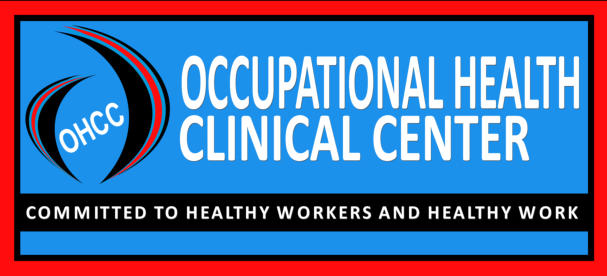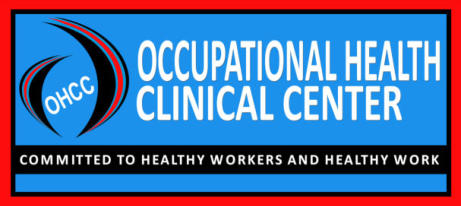
2019 © OCCUPATIONAL HEALTH CLINICAL CENTER / 6712 BROOKLAWN PARKWAY, SUITE 204 / SYRACUSE / NY / 13211
PHONE: 315-432-8899 / FAX: 315-431-9528 / EMAIL: CNYOHCC@UPSTATE.EDU

SOLIDARITY AT BREAKFAST
Michael B. Lax, MD, MPH
May 24, 2018
About 170 people came together for a ‘Solidarity Breakfast’ for Workers’ Memorial Day in Syracuse last month. Bringing 170 people out for an event, especially for a breakfast that cost $25, is no mean feat, so mega kudos should go to the organizers who included the Occupational Health Clinical Center, the Area Labor Federation, several union locals, the Worker Center of Central New York, Workers’ Compensation attorneys, and community activists. The reason for listing specific organizations is to illustrate the second remarkable feature of the gathering: the bringing together of people and groups who don’t normally interact directly all that much but need to do so more often. So even though most attendees ate their scrambled eggs at a table with their own ‘kind’, the act of coming together in the same room to break bread and share an experience that included speakers, awards, and songs is a notable achievement. The breakfast program emphasized several themes. Workers’ in our region who lost their lives on the job in the past year were remembered, and the stepson of a worker recently killed on the job spoke movingly of the devastating impact of his stepfather’s death. Mother Jones gave Workers’ Memorial Day its slogan: “Mourn for the Dead, Fight for the Living” and the rest of the program was focused on the “Fight” half of her exhortation. Immigrant workers were a major focus for four of the awardees. After receiving an award for his many years of health and safety worker with the Tompkins County Workers’ Center, Carlos Guttierez reflected on his younger days in his native Chile where he was imprisoned for three years by the Pinochet dictatorship for the ‘crime’ of being an activist in support of President Salvador Allende. He pointed out the connection between him being forced to leave his country over forty years ago due to a US backed coup that overthrew Allende, and more recent waves of immigrants from Mexico and Central America also forced to leave their countries largely due to US policies, this time economic rather than military or political. Other awardees, Arely Tomas, a Workers’ Center activist, and Dolores Bustamonte, an apple farmworker activist were recognized for their commitment to struggling for their and their co-workers’ rights in the workplace, struggles made immensely more difficult by their undocumented status. Both have been arrested by Immigration and Customs Enforcement (ICE) and face possible, if not likely deportation. The unspoken irony of their stories is that they are pushed out of their own countries by US policies, come to the US because they are essential to the US economy, and work hard to save money for a hoped for return home someday, only to be demonized as job stealers, freeloaders, and criminals, and hunted, arrested and expelled as ‘illegal aliens’. Carly Fox, another awardee for her advocacy work with the Worker Justice Center explicitly drew the connection between immigrant rights and health and safety through the specific example of the Green Light Campaign. The campaign is an effort underway in New York State to pass legislation allowing undocumented workers to apply for drivers’ licenses. Without the ability to drive, farm workers toil in isolation and depend on their bosses’ generosity, expensive rides from local entrepreneurs, or favors from friends for even simple tasks like getting to the grocery store for food. Isolated and dependent, workers are easier for the boss to keep under surveillance and control. Workers who lack access to spaces outside their employers control are unlikely to know their rights, let alone organize effectively or access resources to help act on them. From a health and safety standpoint this practically guarantees the employer can require workers work under whatever conditions s/he creates, unimpeded by any health and safety demands. When a worker suffers a job related injury or illness the employer can control the medical treatment by determining where the worker goes for care and maintaining a presence in the treatment process. Access to transportation is a fundamental need for these workers. Local labor unions and individual union members have typically figured prominently in struggles over health and safety issues. Pat Greenberg, formerly a hospital nurse and just retired as a union representative for 199SEIU was another awardee and she exemplifies the committed union member in it for the long haul. In over 25 years Pat was involved in many union efforts, beginning with the organizing campaign that brought a union to Crouse Hospital’s nurses, and going on to bargaining and serving as a union representative. Along the way she developed and interest in safety and health and participated in successful statewide efforts to pass legislation mandating safe needles and safe patient handling regulations, addressing major concerns of nurses and other health care workers. Pat’s activities illustrate the fact that health and safety conditions are not separate from other workplace concerns of union and non-unions workers alike. Lousy workplace conditions are typically not restricted to one issue, and a boss looking to save money by cutting corners will often include shortcuts in safety and health in his or her efforts. But while the awardees were celebrated at the breakfast, a deeper reality was left unspoken. Labor unions, especially industrial unions, have shrunk to only a portion of their previous size and no longer wield the clout they once did among employers and politicians. On the other side, Workers’ Centers have made tremendous strides in their abilities to reach and organize amongst the unorganized, but they remain relatively small and short on resources and capacity. Consequently, many of the unorganized remain outside of their embrace. The old cliché of solidarity forever is not really a cliché in this context. If we are to play a serious role in preventing workers from getting injured or ill on the job solidarity is an absolute necessity. Its easy to assert the need for solidarity, and relatively easy to put together a breakfast once a year. But it will take much more than an exhortation to move people to real unity of purpose and action. On the one hand a worker is a worker is a worker. All have a common interest in bettering their working lives, resisting their bosses’ efforts to squeeze more profits by squeezing workers, and making the workplace safe enough so that they are assured of going home after work instead of to the hospital or morgue. These common interests should bring all workers together, no matter their skin color, gender, sexual preference, ethnic background, age, religion, or any other of the many characteristics that divide us. On the other hand, differences are real and have long histories often making it very difficult for us to overcome our divisions and see the commonalities that unite us. So while we strive for solidarity we must also understand, acknowledge, and grapple with our differences. Why is this so essential? For one thing who we are is shaped by our experiences and the world we live in, and in turn we perceive the world we live in based on who we are. African-Americans who have experienced the racism so pervasive in this society, tend to see the police, for example in a much different light than whites who have not had those experiences. The same for women, who as the MeToo movement has shown, experience daily the impact of male entitlement, and unsurprisingly often see gender relations quite differently than men. By acknowledging these and other differences we enable all to speak their truths and offer approaches and solutions to problems that utilize their insights, concerns and perspectives to lead to more comprehensive and effective strategies. The other, and probably more difficult issue to confront is to come to some understanding how the racist, sexist, homophobic milieu that we have breathed in like the air that surrounds us, unnoticed and unseen, has shaped us. This is not to imply it has shaped us all in the same ways. If we insist on ignoring these issues it is likely that whatever organization we create or campaign we pursue will reflect the milieu from which it has sprung, and our divisions will remain an enduring impediment to solidarity and the power that comes from unity. Despite our best intentions and efforts, creating solidarity while acknowledging differences will be a bumpy, difficult, and sometimes painful process. There is no guarantee of success, and there are certain to be mistakes, false starts, and a need to reflect and change paths. There will be no movement forward, however, if we are not able to keep coming into the same room for the rest of the year after Workers’ Memorial Day, with goodwill in our hearts, and a commitment to a common goal of preventing workers from dying or getting injured or ill on the job. In that room we will need to ban defensiveness and ego and engage each other, listening closely, and responding with generosity and openness.


2019 © OCCUPATIONAL HEALTH CLINICAL CENTER / 6712 BROOKLAWN PARKWAY, SUITE 204
/ SYRACUSE / NY / 13211
PHONE: 315-432-8899 / FAX: 315-431-9528 / EMAIL: CNYOHCC@UPSTATE.EDU

































